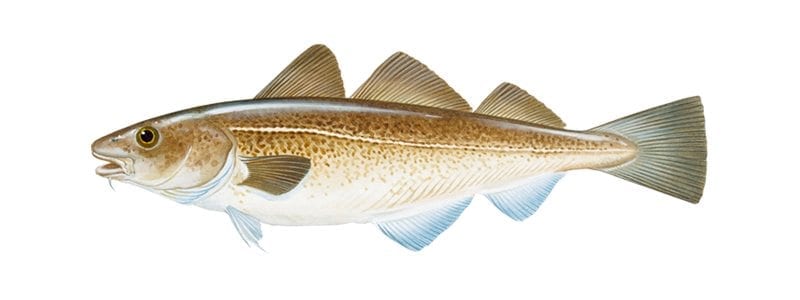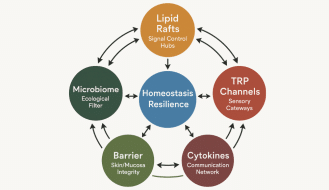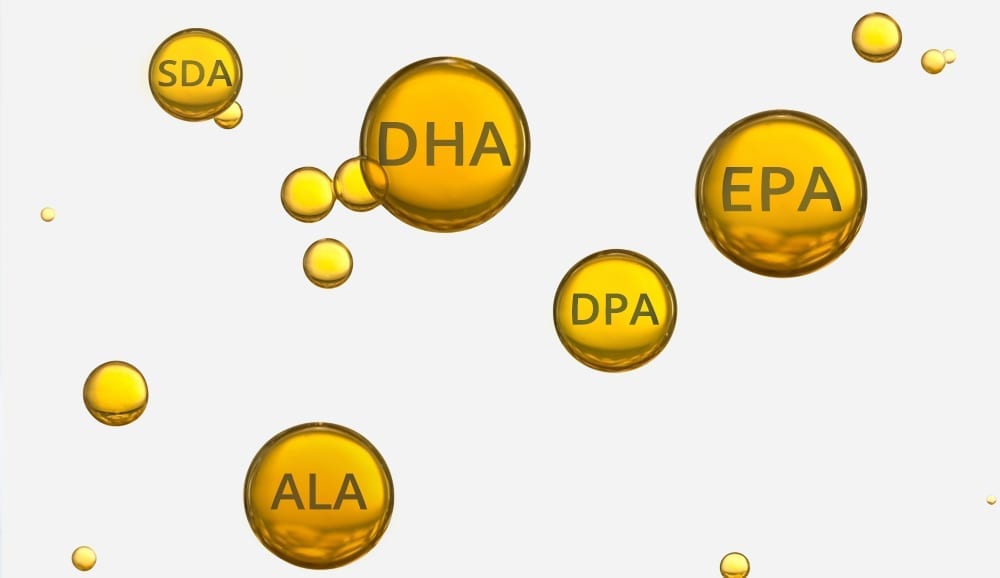Full-Spectrum Fish Oil: Why It Matters to Omega-3 Consumers
When we first started producing Omega Cure® liquid fish oil in 2006, few people recognized the term “full-spectrum.”
What was the ‘spectrum,’ they would ask. What was our Omega Cure ‘full’ of, compared to other omega-3 oils? Weren’t all fish oils essentially alike?
Up until that point, few people — including omega-3 insiders and nutrition experts — had analyzed how the manufacturing process affected the health benefits of fish oil. Today, we know that proper handling and manufacturing are essential to preserving an oil’s freshness level, healthy fatty acid ratio and nutrient co-factors.
That is where the term “full-spectrum” comes into play. Much like extra-virgin olive oil, “full-spectrum” describes a fish oil that has preserved its natural and nutritional integrity:
The Many Members of the Omega-3 Family
Fish and natural fish oil contain a wide range of beneficial fatty acids. Besides featuring a cocktail of omega-3, 6, 7, 9 and 11, fish oil also contains numerous types of omega-3s. This includes the popular EPA and DHA fatty acids, as well as lesser known omega-3s like DPA, ALA, SDA, and more. In addition, fish oil also provides a multitude of active co-factors that play important physiological roles.
All of these fatty acids and their derivatives flourish in natural fish oil, providing a wide range of nutrients for the body to absorb and enjoy. In its natural state, fish oil should provide the same mix and fatty acid content as fish. But just as drinking filtered orange juice is not as healthy as eating a fresh orange, the more you process the oil, the less nutrients it eventually contains.

How Is Fish Oil Typically Made?
Unfortunately, most omega-3 manufacturers process their fish oil in ways that strip the oil of its full-spectrum nutrient content. When fish is harvested, the oil is extracted and cleaned to remove any heavy metals or pesticides. But after that cleaning process, manufacturers also skim off the top layer of oil in a procedure called “winterization.”
This manufacturing method is designed to ‘beautify’ the fish oil. That is because when fish oil cools, it starts to congeal and clump together, creating a thick texture that manufactures find more difficult to handle. To avoid the texture problem, omega-3 manufacturers almost always remove this thick layer of oil, and bottle just the clear, thin layer.
Skimming Essential Nutrients Out of Fish Oil
What most manufacturers and consumers don’t know is that this thick, congealed layer of oil contains important nutrients. When we analyzed the skimmed off portion of oil, we found that it was rich in omega-3s and healthy saturated fats. We started to suspect that by removing the congealed layer, the industry was in fact throwing out the baby with the bath water. Perhaps this could explain why full-spectrum Omega Cure seemed to create more powerful physiological effects for our customers than what we would expect from reading omega-3 research reports.
A study from Iceland supports the idea that this congealed, discarded oil may actually benefit consumers. The researchers analyzed the skimmed off portion of the fish oil and found that it contained “a vast variety” of beneficial fatty acids. Furthermore, the researchers found that this skimmed off fish oil had benefits for the skin.
While there is still little research on this frontier, the winterization procedure is problematic from a nutritional standpoint. As the manufacturers remove this rich source of fatty acids, the consumer is left with only a fraction of the fatty acid content found in fish. Could this be one of the reasons why many people don’t see the same health benefits from consuming omega-3 supplements as they do from regularly eating fatty fish?
Chemically Modifying EPA and DHA Levels
The term “full-spectrum” needs to be integrated into the omega-3 conversation — especially as the fish oil industry moves towards producing highly processed, chemically modified fish oil supplements.
Because omega-3 research of late has focused almost exclusively on EPA and DHA, the industry has started producing “prescription” fish oil supplements with artificially inflated levels of EPA and DHA. To ramp up the amount of EPA or DHA in small servings of oil, manufacturers remove the other fatty acids in the oil and create a new chemical structure called ethyl esters, which are not found in nature. While high levels of EPA and DHA looks great on paper, the body does not absorb and metabolize ethyl esters in the same way as it does the natural forms.
To make matters worse, by limiting the nutritional value of the fish oil to just one or two types of fatty acids (without fully knowing what kinds of omega-3s and other nutrient co-factors might be important) manufacturers may be presenting nutritionally stunted options to consumers and reducing the benefits of fish oil.
“Extra-Virgin” Fish Oil?
As is the case with its fatty acid cousin, the omega-9 rich olive oil, the quality and benefits of fish oil depend on the manufacturing process. Most of us take care to buy extra virgin olive oil, knowing that the term “extra-virgin” describes an oil that has been gently processed and that preserves the integrity of the source ingredient.
We need to pay the same attention to our fish oil. As with all our foods, to get the true benefits of omega-3s, we need high quality products that deliver nutrients as close to Mother Nature as possible.
How Is Omega3 Innovations Different?
At Omega3 Innovations, we only use full-spectrum fish oil in our products. By purifying the oil and letting the rest of the nutrients remain intact, we provide customers with an extra-virgin, full-spectrum oil that preserves the fatty acids in their original form.
We hope that by raising awareness for fresh, full-spectrum oil, we can encourage the industry to move towards a more holistic approach to omega-3 supplementation.
Try Exceptionally Fresh Omega Cure
Experience the Omega3 Innovations difference for yourself with the most effective fish oil supplement on the market.
Buy Now
Popular posts



Related posts






